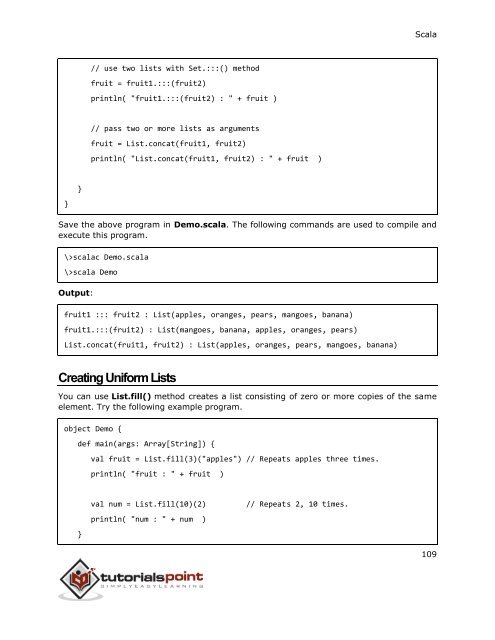You also want an ePaper? Increase the reach of your titles
YUMPU automatically turns print PDFs into web optimized ePapers that Google loves.
Scala<br />
// use two lists with Set.:::() method<br />
fruit = fruit1.:::(fruit2)<br />
println( "fruit1.:::(fruit2) : " + fruit )<br />
// pass two or more lists as arguments<br />
fruit = List.concat(fruit1, fruit2)<br />
println( "List.concat(fruit1, fruit2) : " + fruit )<br />
}<br />
}<br />
Save the above program in Demo.<strong>scala</strong>. The following commands are used to compile and<br />
execute this program.<br />
\><strong>scala</strong>c Demo.<strong>scala</strong><br />
\><strong>scala</strong> Demo<br />
Output:<br />
fruit1 ::: fruit2 : List(apples, oranges, pears, mangoes, banana)<br />
fruit1.:::(fruit2) : List(mangoes, banana, apples, oranges, pears)<br />
List.concat(fruit1, fruit2) : List(apples, oranges, pears, mangoes, banana)<br />
Creating Uniform Lists<br />
You can use List.fill() method creates a list consisting of zero or more copies of the same<br />
element. Try the following example program.<br />
object Demo {<br />
def main(args: Array[String]) {<br />
val fruit = List.fill(3)("apples") // Repeats apples three times.<br />
println( "fruit : " + fruit )<br />
}<br />
val num = List.fill(10)(2)<br />
println( "num : " + num )<br />
// Repeats 2, 10 times.<br />
109


